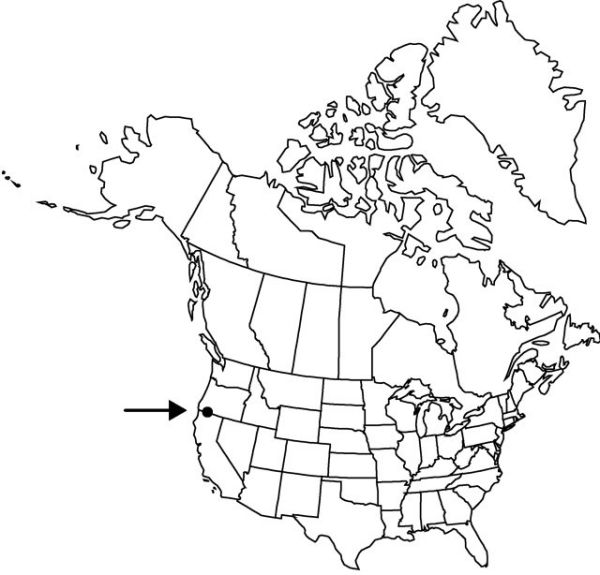Erythronium citrinum
Proc. Amer. Acad. Arts 22: 480. 1887.
Bulbs slender, 40–50 mm, sometimes producing sessile offsets. Leaves 9–15 cm; blade mottled with irregular streaks of brown or white, lanceolate to narrowly ovate, margins ± wavy. Scape 12–35 cm. Inflorescences 1–3-flowered. Flowers: tepals ± white, often pinkish, usually pale yellow at base, lanceolate to narrowly elliptic, 25–45 mm, inner with or without small auricles at base; stamens 11–17 mm; filaments linear, white or pinkish, slender, less than 0.8 mm wide; anthers white, cream, pink, reddish, or brownish red; style straight, white or pink, 6–10 mm; stigma unlobed or with lobes shorter than 1 mm. Capsules obovoid, 2–5 cm. 2n = 24.
Phenology: Flowering spring (Mar–May).
Habitat: Dry woods, brushy slopes, common on serpentine substrates
Elevation: 100–1300 (–1800) m
Discussion
Plants lacking auricles on inner tepals are sometimes segregated as Erythronium howellii, Howell’s fawn-lily, but they do not appear to differ from typical E. citrinum in any other characters. Erythronium citrinum intergrades with E. californicum and E. hendersonii, occasional populations or individuals displaying intermediate or recombined characteristics. Such plants from the upper Scott River drainage in Trinity County, California, which may be the result of introgression with E. hendersonii, have been recognized as variety roderickii.
Selected References
None.
